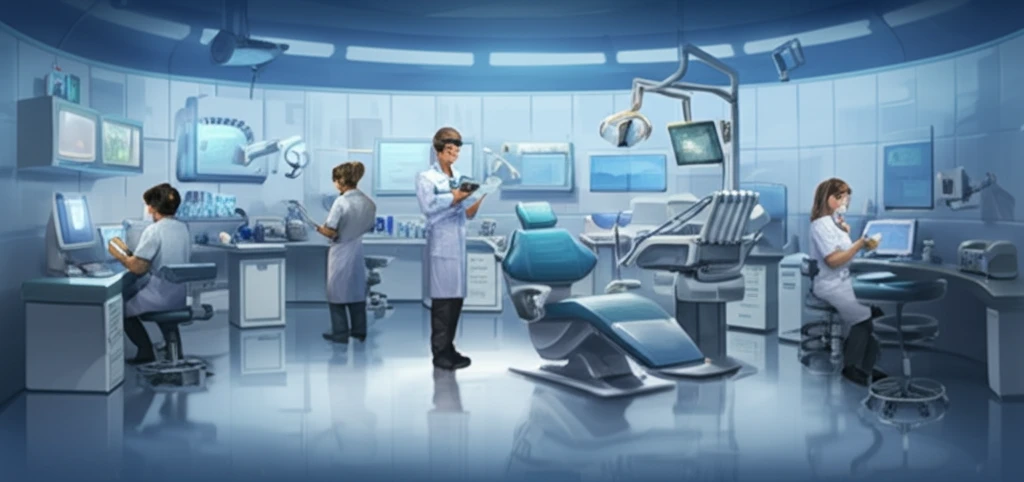
The Evolving Role of Dental Technicians: Are They Key to Affordable and Accessible Dental Care?
"Exploring how dental technicians' expanding skills can address the oral healthcare crisis."
For over a century, the dental industry has been shaped by a delicate balance between professional ideals and practical needs. This has directly affected how dental tasks are divided and who performs them. In many regions across the globe this has led to a strange imbalance. The global oral health challenges, coupled with the uneven distribution and high cost of dental services, demand a fresh look at how dental care is delivered.
In Brazil, like many other countries, the debate over the role of dental technicians and other auxiliaries is heating up. A surplus of dentists, coupled with restrictive regulations and scope of work disagreements, has created bottlenecks in the system. Many dental technicians in Brazil and elsewhere find themselves caught in a tug-of-war between dentists, policymakers, and their own professional aspirations.
This article explores the changing dynamics within dental teams, looking at how expanding the role of dental technicians, navigating scope of work disputes and outdated regulations could be key to making dental care more affordable and accessible. By examining the historical context, current challenges, and potential solutions, we can pave the way for a more efficient and equitable oral healthcare system.
The Technician Talent Pool: Why Expanding Roles Makes Sense

The core of the debate lies in how efficiently the dental team functions. Traditionally, dentists have been positioned as the gatekeepers of all dental procedures, even routine ones. However, with a growing shortage of dentists in underserved areas, particularly in public health systems, this model is becoming unsustainable. Many argue that appropriately trained dental technicians can take on a wider range of tasks, freeing up dentists to focus on more complex and critical procedures.
- Increased Efficiency: When technicians handle tasks like routine cleanings, fluoride applications, and taking X-rays, dentists can concentrate on diagnosis, treatment planning, and complex restorative work.
- Improved Access: Expanding the scope of practice for technicians, especially in underserved communities, can bring basic dental care to those who might otherwise go without it.
- Reduced Costs: By delegating certain procedures to technicians, the overall cost of dental care can be lowered, making it more affordable for patients.
- Better Patient Experience: With a well-defined scope of practice, technicians can provide personalized attention and education to patients, promoting better oral hygiene habits.
A Healthier Future, Together
The path to better oral healthcare involves more than just expanding the role of dental technicians. It requires a collaborative effort from dentists, technicians, policymakers, and educators to create a system that prioritizes accessibility, affordability, and quality. By embracing innovative models of care delivery, investing in training and education, and fostering open dialogue, we can build a healthier future for all.
